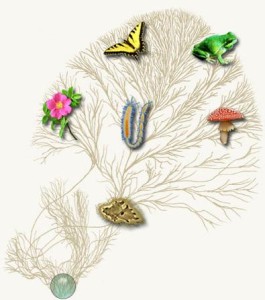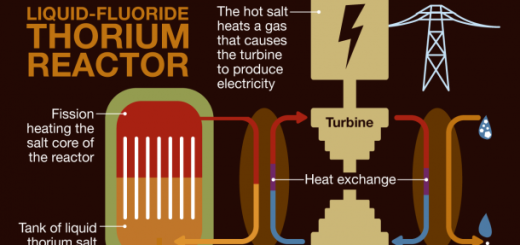Engineered Evolution
If evolution were an epic novel, I suggest that it would be divided into three books, a trilogy. Each book begins with one of the three greatest evolutionary innovations.
Book One begins with the first emergence of life on Earth, about 3.5 to 3.8 Billion years ago. We may never know the specific details of how that happened, but we know much more than we did even a few decades ago. We have a conceptual framework. Life most likely arose on the floor of the ocean, where energy rich molecules from geothermal processes percolated through porous rock into an ocean rich with pre-biotic organic compounds. It apparently didn’t take too long – just a few hundred million years – before life emerged within this bubbling brew.
I don’t mean to diminish the miraculous aspect of the emergence of life. I believe life is something that is likely to emerge on planets like Earth, but even if it is common, it is still amazing. So we must acknowledge the origin of Life as the most important event in the whole evolution of Life on Earth.
Over the next three billion years, there were many really fascinating innovations in evolution. Those included photosynthesis, oxygen respiration, and sexual reproduction. But all within single cell organisms. It was, in a way, all variations on a theme.
Book Two of the trilogy begins about 600 Million years ago, with the emergence of complex multicellular organisms, and particularly animals with nervous systems. There had already been many examples of single celled organisms living in colonies, or in biofilms consisting of multiple species. But this was a whole new dimension of evolution, in which natural selection operated at the level of the organism, not the cell. Further, the evolution of nervous systems meant that organisms could perceive, process information and respond as an integrated system rather than a loose community of cells. The behavior of the individual cells of the organism became constrained and conditioned by information within the multicellular nervous system. A frog can jump, for example, which is something no mere colony of cells could do.
Now, after the rise of multicellular organisms, there were many fascinating and important innovations. Shells, backbones, eyes, lungs, wings, brains. But none rise to the level of significance of either the first emergence of life, or the emergence of multicellular animals.
For the past several thousand years, human culture has typically set humans apart from all the other animals. We are created in God’s image, some would say, or we are the pinnacle of evolution, others might say. Many, myself included, don’t think either of these viewpoints are correct. But I do think we are special. In fact, I believe that the emergence of human culture has initiated the third greatest event in all of evolution. Book Three in the Evolution Trilogy begins with us.
 But does not end with us. The evolutionary significance of humanity is not our intelligence, our language, or our technology, although all of these are necessary precursors to the main event. The main event is simply this: Humans have learned how to engineer evolutionary change based upon our own intentions. We have broken the bounds of natural selection, and introduced genetic engineering. We will find that we will not be able to put that Genie back inside its bottle, and before too many years go by, we will engineer the Earth’s biosphere, and ourselves, in ways difficult to imagine today.
But does not end with us. The evolutionary significance of humanity is not our intelligence, our language, or our technology, although all of these are necessary precursors to the main event. The main event is simply this: Humans have learned how to engineer evolutionary change based upon our own intentions. We have broken the bounds of natural selection, and introduced genetic engineering. We will find that we will not be able to put that Genie back inside its bottle, and before too many years go by, we will engineer the Earth’s biosphere, and ourselves, in ways difficult to imagine today.
We started this process thousands of years ago, long before we understood genetics, with intentional selective breeding of plants and animals. Now, with DNA sequencing and splicing, we are beginning to directly engineer the genetic makeup of plants and animals. We are even able to take gene sequences from one organism, such as a gene that codes for a protein that makes a firefly glow, and insert it into another organism; creating, for example a glowing frog. It’s been done; don’t ask me why.
The introduction of genetically modified organisms (GMO) into our food chain has caused a lot of concern, and not without reason. Look at the mess we have already made with non-modified invasive species that we introduce, accidentally or on purpose, into our ecosystems. There is reason to be concerned that genetically modified organisms might create similar ecosystem damage. Monsanto sells genetically modified soybeans that have a genetic sequence from a bacteria that produces a natural insecticide called Bt. I’m not so worried about eating the Bt; it seems to be non-toxic to humans. Bt has been sprayed onto our crops to defend against insect infestations for many years. But with Bt now present in virtually all soybean plants, and other crops, I’m worried about insects evolving that are resistant to Bt, which will force us to use more toxic pesticides. I also have big issues with the way Monsanto does business, but that isn’t directly relevant to our story.
Or how about this: selective breeding and more recently genetic engineering has dramatically increased gluten content in wheat, which makes for nice chewy bread. But gluten irritates our intestinal system, and causes severe intestinal disease in some people.
So there is reason to be concerned about GMO, but there are also reasons to be excited about the possibilities.
Let’s go back to wheat gluten. It happens that there are a bunch of different wheat gluten proteins, not just one, and that only a few of these cause problems in our intestines. Researchers are currently working on genetic engineering that could selectively eliminate the bad glutens. Net result, good bread that doesn’t hurt us.
Genetic engineering could modify temperature sensitive crops to thrive despite global warming. It can create rice packed with vitamins. Corn with more compete nutrition. Trees, perhaps, with resistance to the beetles that are devastating North American forests. Sheep have been genetically engineered to economically produce various proteins in their milk that are critical medicines for various diseases such as hemophilia and cystic fibrosis. Lifestock can be engineered, instead of selectively bred, to be meatier, woolier, or to be less prone to disease.
I’m a cautious optimist, but I understand and appreciate the arguments against GMO. As a student of human behavior, however, I can tell you with full confidence that there is no stopping the incoming tidal wave of genetic engineering. The cost of equipment for genetic engineering is dropping much faster than the cost of electronic memory. There is a growing DIY movement in which individuals and groups not associated with any major lab are performing genetic experiments. And the economic incentives are just too high. Within a few years, people all over the world will be tinkering with genetics, basically in their garages and kitchens. This is unstoppable. We may be able to regulate, to a degree, but we can’t stop it.
Which then brings us to the most controversial aspect of engineered evolution, which is when we turn it onto ourselves.
Many severe genetic diseases could be eliminated by editing DNA in the egg or zygote. That’s going to happen. But it won’t stop there. It may take another 100 years before we allow it, but humans are going to start engineering their offspring. Those offspring will in turn engineer their offspring in even more dramatic ways.
I know, this smacks of eugenics, of Hitler’s dream of a master race. But genetic engineering does not require suppressing anyone’s right to reproduce, or to reproduce with whomever they choose. Instead, it is adding a right: the right to know and modify the genetics of their children. Not all rights are necessarily good, of course, and this may be an example. But the point is, this is not forced eugenics, rather a process that can be individually chosen.
We think about changing obvious traits like appearance, or intelligence, or strength, and of course, health. But the real game changing modifications may be very unfamiliar to us. By the time my 10-year-old son has children, he and his wife may decide to tweak the genetics of their child not to have dyslexia. By the time my son’s child has children, the parents may choose to modify their child to be better able to interface directly from her brain into a world-wide-web of people, computers, and data.
Looking at this issue from the lens of a mostly 20th Century human, it scares the heck out of me. Looking at it from an early 21st Century perspective, it is a matter of significant concern. Looking at it from an evolutionary point of view, abstracted from my personal identity and morals, this is a very extraordinary, very amazing change in evolution. This is, certainly, the biggest thing to happen since multicellular animals. Until now, evolution has been mostly a matter of chance and natural selection. Now one of the products of evolution has bridled the horse and taken the reins. Life will never be the same.


Recent Comments